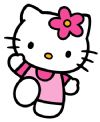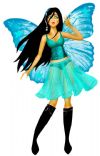|
ESL Forum:
Techniques and methods
in Language Teaching
Games, activities
and teaching ideas
Grammar and
Linguistics
Teaching material
Concerning
worksheets
Concerning
powerpoints
Concerning online
exercises
Make suggestions,
report errors
Ask for help
Message board
|
ESL forum >
Grammar and Linguistics > Let´s start a new debate!!!!
Let´s start a new debate!!!!
|
|

aldanaVenadoTuerto

|
|
Well, THANKS EVERYONE for such insightful comments!!! They have been most helpful!!!!!
And iÿ¢§m also quite glad to have contributed to the return of the grammar & linguistic debates in this forum
CHEERS
ALDANA |
2 Dec 2008
|
|
|

wolfy

|
|
The answer is quite simple if you look at the number of words. ÿ¢§When it comes to language the British but particularly North Americans are lazy. ÿ¢§Therefore 2000ÿ¢§Two thousand (2 words)ÿ¢§Twenty hundred / twenty zero zero / twenty oh oh (2 or 3 words)ÿ¢§Here we make the distinction because 2000 marked an important date 2008ÿ¢§Two thousand and eight (4 words)ÿ¢§Twenty oh eight (3 words)ÿ¢§ There isnÿ¢§t a noticeable difference until we get a few more years back or forward: 1998ÿ¢§Nineteen ninety eight (3 words)ÿ¢§One thousand nine hundred and ninety eight (7 words) 2010ÿ¢§Twenty ten (2 words)ÿ¢§two thousand and ten (4 words) 2021ÿ¢§Twenty twenty one (3 words)ÿ¢§two thousand and twenty one (5 words) My personal prediction is that people in general will use twenty ten in 2010. ÿ¢§However if it doesnÿ¢§t occur then it will definitely occur in twenty twenty 2020, because itÿ¢§s already a used expression (20/20 vision) and it has a nice ring to it. ÿ¢§This is what I tell my students, but really the only answer is to wait and see, even though one form or other may be incorrect, it really depends what joe blow will say, therefore count the number of words because joe is lazy. For extra lazieness remember that North American donÿ¢§t use "and" in their numbers (two thousand eight)
|
2 Dec 2008
|
|
|

libertybelle

|
Iÿ¢§ve been studying the Nordic languages for 25 years, and have lived here for that same amount of time.
Being a lyricist too, I have often been asked to correct lyrics written by Danes, Swedes and others.
Iÿ¢§ve learned through this work these many years, that no matter how much you study a language -
growing up with a language and all it entails, such as, the figures of speech, the nursery rhymes, the songs, the slang - it all sits in your backbone. Itÿ¢§s an integrated part of who we all are.
And no matter how good a teacher I am in Danish, I will never have the same feeling for the language as I have for English, my native tongue.
A lot of expressions relate to childhood experiences that stay with you forever.
The same applies for the humor.
Iÿ¢§m not saying a person who is not a native speaker can never be a super teacher. On the contrary, I work with many fantastic English teachers who are not native speakers and have the great capacity to make their student speak wonderful English.
But I do think that there is a difference between a studied language and a language you grew up with.
and remember - it takes a very special person to be a good teacher. Being part of this group has shown me that.
|
2 Dec 2008
|
|
|

kalala

|
|
Iÿ¢§m not basing this on anything official but only my own feeling as being English and having lived in London all my life til this summer....
"Two thousand and eight" and "twenty oh eight" both sound OK to me, but the former comes a little more naturally and sounds a bit better somehow.
As for the Olympics 2012, all the people I know definately refer to that as "London twenty twelve". I have never heard anyone say "London two thousand and twelve" Iÿ¢§m certain..... |
2 Dec 2008
|
|
|

Damielle

|
|
What a good question , Aldana! An how many interesting answers. Here you have more interesting information.
|
2 Dec 2008
|
|
|

campbelldavidson

|
Hi,
Just thought I would weigh into this debate. I have lived in Britain my whole life, have a masters in TESOL and have taught for five years (not that it matters). 19 oh 1 or whatever is perfectly natural. If you watch BBC documenataries about something like Queen Victoria, they will say she died in 19 oh 1... but there is a lot of abiguity and people generally choose which form to use at that particular moment. Nineteen hundred and one sounds weird and an unnecessary waste of words to me but I have heard it
An example would be 2001 a Space Odyessy (written and direccted by British people). No one would ever call it 20 oh 1 a space odyessy just because it doesnt feel right phonetically.
It also depends on the situation and what you are talking about. london 20 12 sounds modern and cool but two thousand and twelve sounds like just a date in the future. However after the olympics I am 100% sure people will call the year 2 thousand (and) twelve.
Cheers
Campbell
|
2 Dec 2008
|
|
|

alien boy

|
|
I have 3 general thoughts:
1. All languages are made up of units of meaning. Spoken languages are also made up of units of sound. In every language & dialect there are sound formation patterns that are followed - eg an apple, an MBA, a dog, a degree - the common pattern here is that ÿ¢§anÿ¢§ always precedes a vowel sound (not letter) and in all other cases ÿ¢§aÿ¢§ is used.
It is more difficult to physically produce an ÿ¢§ohÿ¢§ sound after an ÿ¢§iÿ¢§ sound for most native Standard English speakers, so to say ÿ¢§twenty oh eightÿ¢§ is not as fluid as saying ÿ¢§two thousand and eightÿ¢§.
If you would like me to discuss this in more technical terms youÿ¢§ll have to wait a couple of days until after my exams!
2. You can say ÿ¢§twenty thirtyÿ¢§(2030) without misinterpretation as they are distinct numerical representations - 20 / 30. With a year like 2008 the numbers break down to 20 / 08 - ÿ¢§twentyÿ¢§ and ÿ¢§eightÿ¢§ mathematically, which could create confusion for the listener - did the speaker mean ÿ¢§28ÿ¢§ or ÿ¢§2008ÿ¢§? This would be why ÿ¢§ohÿ¢§ needs to be inserted.
3. Social convention: expression within social groups can be influenced by different practices among speakers. These practices may be a ÿ¢§fadÿ¢§ or fashion and sometimes these can cause variations (& even formally grammatically incorrect) in language use. I always think of things like ÿ¢§that was funny, not!ÿ¢§
So maybe the 2008 utterance could be influenced by one or more of the above general influences.
Hope that makes sense!
Regards,
B-) |
2 Dec 2008
|
|
|

wolfy

|
|
Just to add a little more spice to this debate...
How about BC?
for example one thousand nine hundred and ninety nine BC sounds good, but nineteen ninety nine BC doesnÿ¢§t, ÿ¢§it also doesanÿ¢§t sound right with AD, one thousand nine hundred and ninety nine AD sounds good, but nineteen ninety nine AD. ÿ¢§Is it just me or does adding BC or AD change the rule?
Thanks for the great question by the way.
|
2 Dec 2008
|
|
|

Zora

|
I think it does Kevin...for example: 1034 AD sounds good when you say 10-34 AD but not one thousand fifty four AD.
Though.... 2010 AD still sounds better 2 thousand and ten AD than 20-10 AD - at least to me.
|
2 Dec 2008
|
|
|
|
< Previous
1
2
3
Next >
|
















